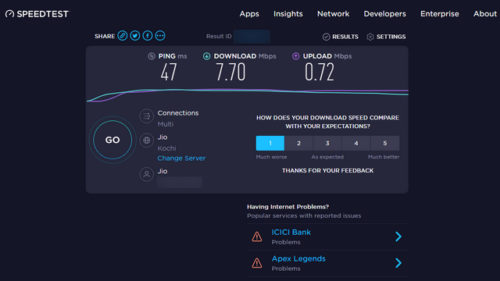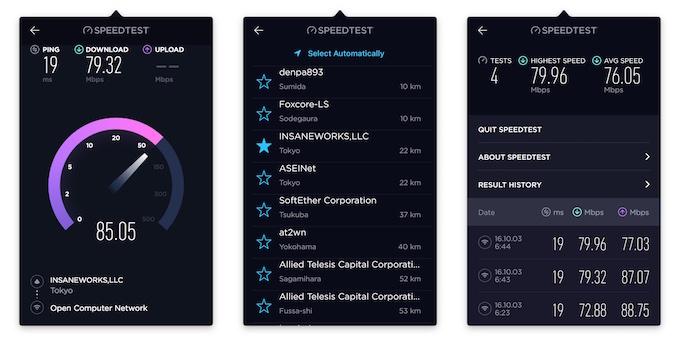

The company's speed tests are provided by Ookla, as are the tests at many other network providers.

Not surprisingly, the highest consistent speeds were reported when I ran the tests offered by my ISP, AT&T.

The results of the HTML5-based speed tests conducted at Bandwidth Place ranged from 5Mbps to 11Mbps, those at exhibited a similar range, and the Flash-based tests at ZDNet's Broadband Speed Test recorded speeds from 5.8Mbps to 11.4Mbps. 's download scores in both its single- and multithread tests exhibited a bit more range than those of Speakeasy's Speed Test, but they averaged about 11.2Mbps. After running several tests over a span of days, all of Speed Test's download results were within a few kilobits of 11.5Mbps. Of course, the services' tests may be consistently wrong. The most consistent test results were recorded at Speakeasy's Flash-based Speed Test and at 's HTML5-based tester. Others point out that multithread tests such as those used by Ookla ( and branded by many ISPs) don't represent real-world network traffic as well as single-thread tests. Many experts claim HTML5-based speed tests are more accurate than tests that use Java and Adobe Flash. Does the type of speed test make a difference? I ran the tests at about a dozen times: three times the download results were under 1Mbps, five times they were between 1Mbps and 4Mbps, twice they were around 8Mbps, and three times the download speed the test reported topped 10Mbps.


 0 kommentar(er)
0 kommentar(er)
